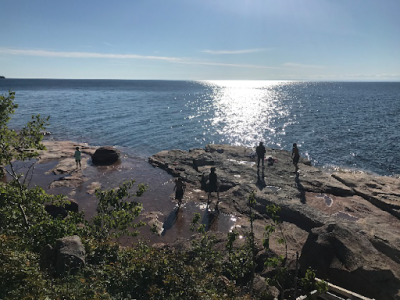The National Oceanic and Atmospheric Administration (NOAA) announced $367,694 in funding for four projects in the inaugural indigenous communities priority under the Great Lakes Bay Watershed Education and Training (B-WET) program. The awards are funded by the GLRI.
Projects are located throughout the basin:
- The Inter-Tribal Council of Michigan: Creating Meaningful and Cultural Watershed Educational Experiences for the Students of the Ojibwe Charter School
- Michigan Technological University with support from the Keweenaw Bay Indian Community: Braiding Knowledge Systems for Increased Earth and Climate Literacy: “Inawendiwin: Connection, Observation, & Learning Together”
- Red Cliff Band of Lake Superior Chippewa and the University of Wisconsin-Madison’s Earth Partnership Indigenous Arts and Sciences initiative: Nibi gaa-gikinoo’amaage, Nibi gaa-bimaaji'iwemagak (Water Will Teach, Water Will Give Life) II
- The Saginaw Chippewa Indian Tribe: Ninkchiwaawenindimin – “We honor each other”
Read more about each of these projects here.
NOAA B-WET is an environmental education program that promotes place-based experiential learning for K-12 students and related professional development for teachers. B-WET fosters the growth of new, innovative programs and encourages capacity-building and environmental education partnerships. The primary delivery of B-WET is through competitive grants that promote Meaningful Watershed Educational Experiences (MWEEs). The MWEE is a learner-centered framework that focuses on investigations into local environmental issues and leads to informed stewardship action.


